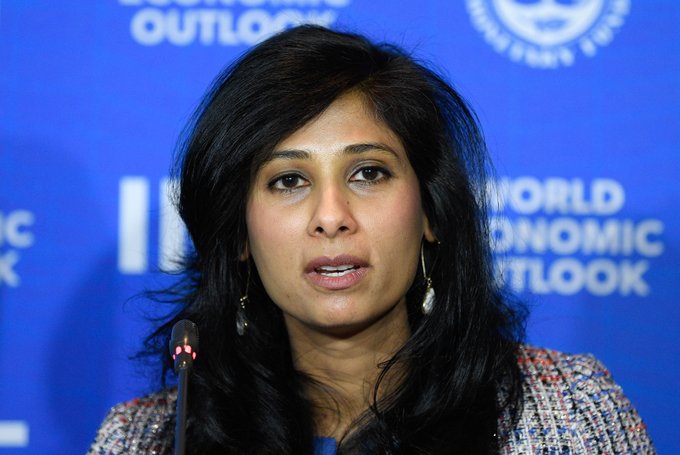Mumbai–A new research report co-authored by IMF chief economist Gita Gopinath claims that the demonetisation exercise generated a decline in national economic activity of roughly 2 percentage points in the fourth quarter of 2016 and was equivalent to a 200 basis point interest rate hike.
The Reserve Bank of India has since February 2019 delivered a 135 basis point rate cut in order to revive economic activity which fell to over a six-year low at 5 per cent during the April-June quarter.
“The magnitude of the peak effect on output is comparable to a roughly 200 basis point tightening of the monetary policy rate based on the median of estimates reviewed in Ramey (2016) of econometric studies of US data,” the research report said.
The Modi government’s key argument to justify demonetisation was to reduce the use of cash which makes financial transaction an expensive affair but the research report concluded that in modern India cash continues to serve an essential role in facilitating economic activity.
Further the research report measured that the decline in cash lowered the growth rate of economic activity by at least 2 percentage points in the quarter of demonetisation and by 3 percentage points in November and December 2016.
“…a sharp, temporary decline in currency caused declines in ATM withdrawals, reduced economic activity, faster adoption of alternative payment technologies, and higher deposit and lower bank credit growth in Indian districts,” the paper said.
However, the report also notes that there may be longer term advantages from demonetisation that arise from improvements in tax collections and in a shift to savings in financial instruments and non-cash payment mechanisms.
The paper, ‘Cash and the Economy: Evidence from India’s Demonetisation’ including Gopinath was authored by Gabriel Chodorow-Reich, an associate professor of economics at Harvard, Prachi Mishra of Goldman Sachs and RBI’s Abhinav Narayanan.
On November 8, 2016, the government of India unexpectedly declared 86 per cent of the existing currency in circulation as illegal tender. (IANS)














